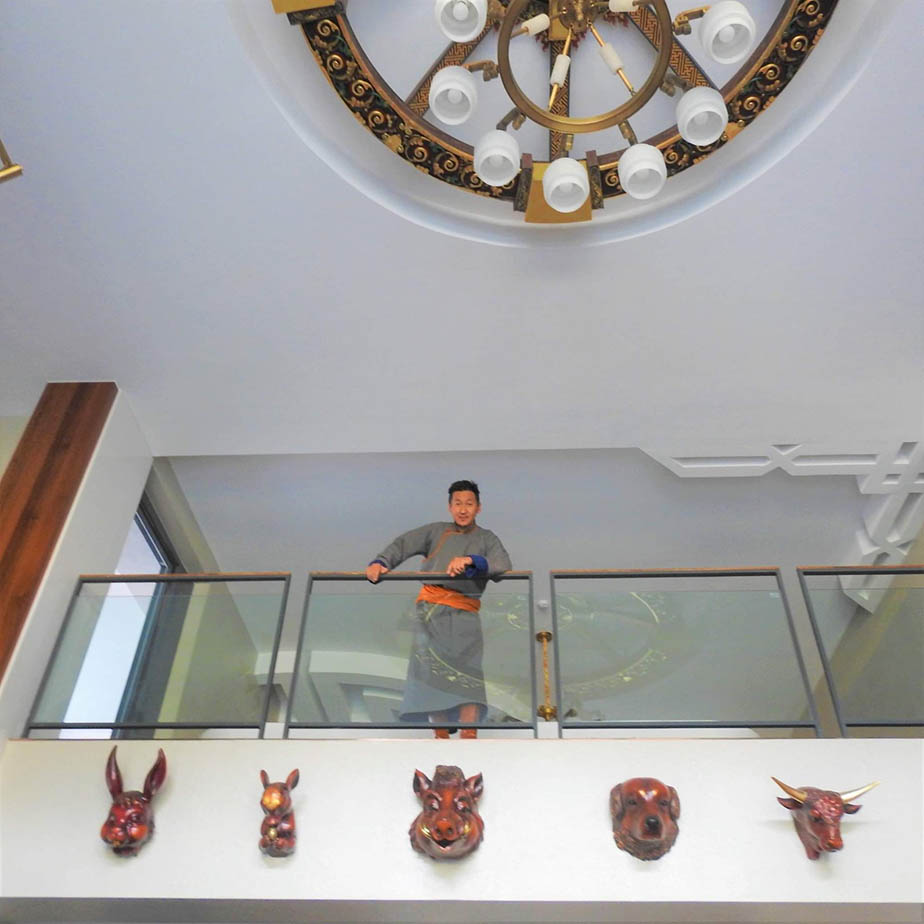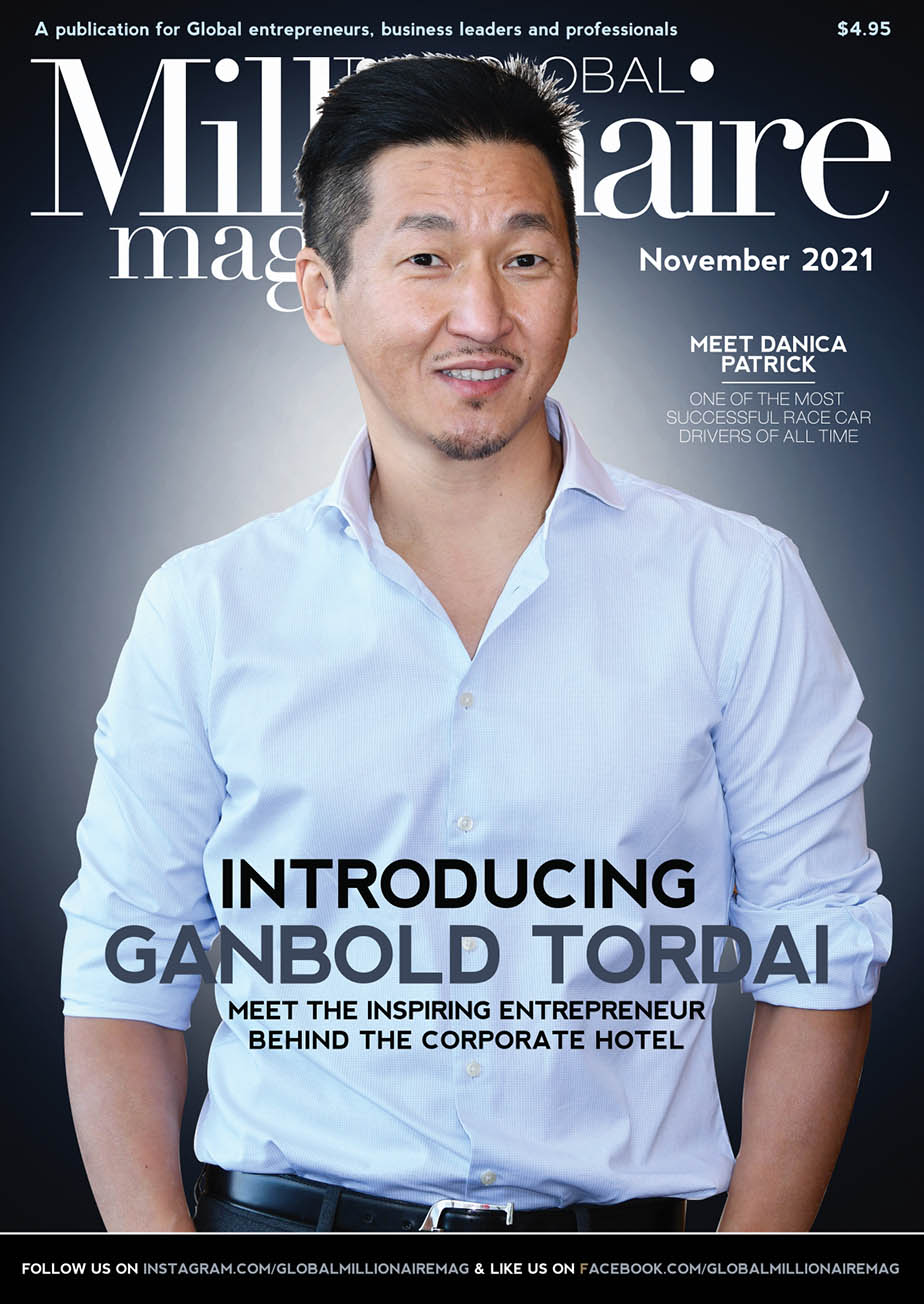
Ganbold Tordai is the inspirational serial entrepreneur behind “The Corporate Hotel” – one of the largest hotel chains in Mongolia. Tordai graduated from the Institute of Foreign Languages and the University of Finance and Economics and he initially kickstarted his entrepreneurial journey by selling wheat. Back in 2001, the agricultural sector in Mongolia was in full decline, and the main raw material to create flour which is wheat was supplied by Russia – he alone supplied up to 60% of wheat in the market. In 2006 he established a chain of The Corporate Hotel and he was also appointed as the CEO of the Darkhan Metallurgical Plant. From the time he was the CEO of the Darkhan Metallurgical Plant, the production capacity rose from 20 to 88 percent, dramatically increasing efficiency and enabling the company to be the main supplier in the domestic market all on its own.
In 2011, Tordai acquired a Russian-owned gold mining company called Altan Dornod Mongol LLC – it was Mongolia’s largest gold exploration and mining company at the time. In 2015 he built a Shambha-La Park Town housing project, and in 2020, he built the Alpha Theater where the famous enlightener Goethe’s Faust was staged.
Global Millionaire magazine recently caught up with Ganbold Tordai to discuss his journey as an entrepreneur and here’s what went down:
Greetings Ganbold and thank you for accepting our invitation to interview you.
Thank you for the opportunity.
It’s a highly known fact that Covid-19 is widespread in several countries all over the world which applies to your country as well. What do you think are some of the major problems that the pandemic is causing to people and various businesses?
The situation is quite challenging in our country. It has heavily impacted a country with a small economy, a small population, and poor medical care and facilities. Even though the pandemic has spread to many countries around the world, the first case of Covid-19 wasn’t registered in our country until 10 months later. However, this gap or timing was not taken advantage of by the decision-makers so our country couldn’t take the appropriate action and prepare for the impact.
This lack of action was directly related to the parliamentary elections. The situation is still difficult up to today due to wasteful spending on the economy in the name of development – ineffective spending and improper decisions have directly affected the lives of citizens as well as small to medium-sized businesses.
Many countries around the world have spent billions of dollars to reduce the effects of the Covid-19 outbreak and to improve public health. Unfortunately, as a citizen of our country, I am pretty critical about this issue and I have been expressing my position publicly because I believe that the budget and such aid funding have been spent chaotically and inefficiently.
The business sector has collapsed and jobs have fallen sharply in several countries all over the world due to the pandemic. What are some of the challenges your company as well as other Mongolian businesses are facing at the moment? Given that you have successfully established a chain of hotels in Mongolia that are known to thousands of visitors, how do you think we can overcome this adversity?
I think the business community has been impacted hard because we did not expect the Covid-19 pandemic to continue for such a long period of time. The situation is honestly not very good in every sector and we are still currently looking for optimal solutions.
One of the most revenue-generating fields, such as the tourism sector has dramatically collapsed. The hospitality industry has been completely affected as well because there are no guests or visitors at the moment. However, we have a strong policy of keeping our employees on the job which is quite risky because how can any business survive without any income in such conditions right? The government of other developed countries provides tax and financial support to small businesses and we are hoping to receive such stimulus as well.
What was the first business that kickstarted your career? Could you please share with us some of your success stories?
During the transition period from communism to market economy and democracy in the 1990s, a vast majority of our businessmen started trading.
Just like the others, I was also involved in trading and I reached a quite good result at that time. Some of the projects that I have successfully completed were:
From 2001 to 2007, the agricultural sector was in full decline, and the main raw material for flour, such as wheat was supplied by Russia – I alone supplied up to 60% of wheat in the market.
In 2006, 2009, and 2013, I built a state-of-the-art concert hall and a chain of The Corporate Hotel.
From 2006 to 2009, I was appointed as the CEO of the Darkhan Metallurgical Plant. During my time with them, the production capacity rose from 20 to 88 percent, dramatically increasing efficiency, and enabling the company to be the main supplier to the domestic market all on its own.
I also made sure that the Tumurtei iron ore deposit – the largest iron ore deposit in Mongolia was recognized as an important asset to Mongolians. I managed to win in a three-stage court which enabled us to acquire it from a Chinese company and made the Tumurtei iron ore deposit become 100 percent state-owned.
In 2011, I acquired a Russian-owned gold mining company called Altan Dornod Mongol LLC. At that time, it was Mongolia’s largest gold exploration and mining company and I had to pay off large amounts of outstanding debts as well as rehabilitate degraded landscapes that mining has caused to the environment.
In 2013, I initiated the Mongolian Gold Miners’ Association to unite local companies and negotiate with the Government, in order to create a favorable legal environment. This move has resulted in an increase in the gold supply to the Central bank from 3 tons per year to 20 tons.
In 2015-2019, I completed a Shambha-La Park Town housing project and in 2020, I built the Alpha Theater where the famous enlightener Goethe’s Faust was staged. The plot of this theatrical show revolves around the consequences of injustice and the value and nature of human life. The show has given many people insight into their lives and has been greatly appreciated by Mongolians.
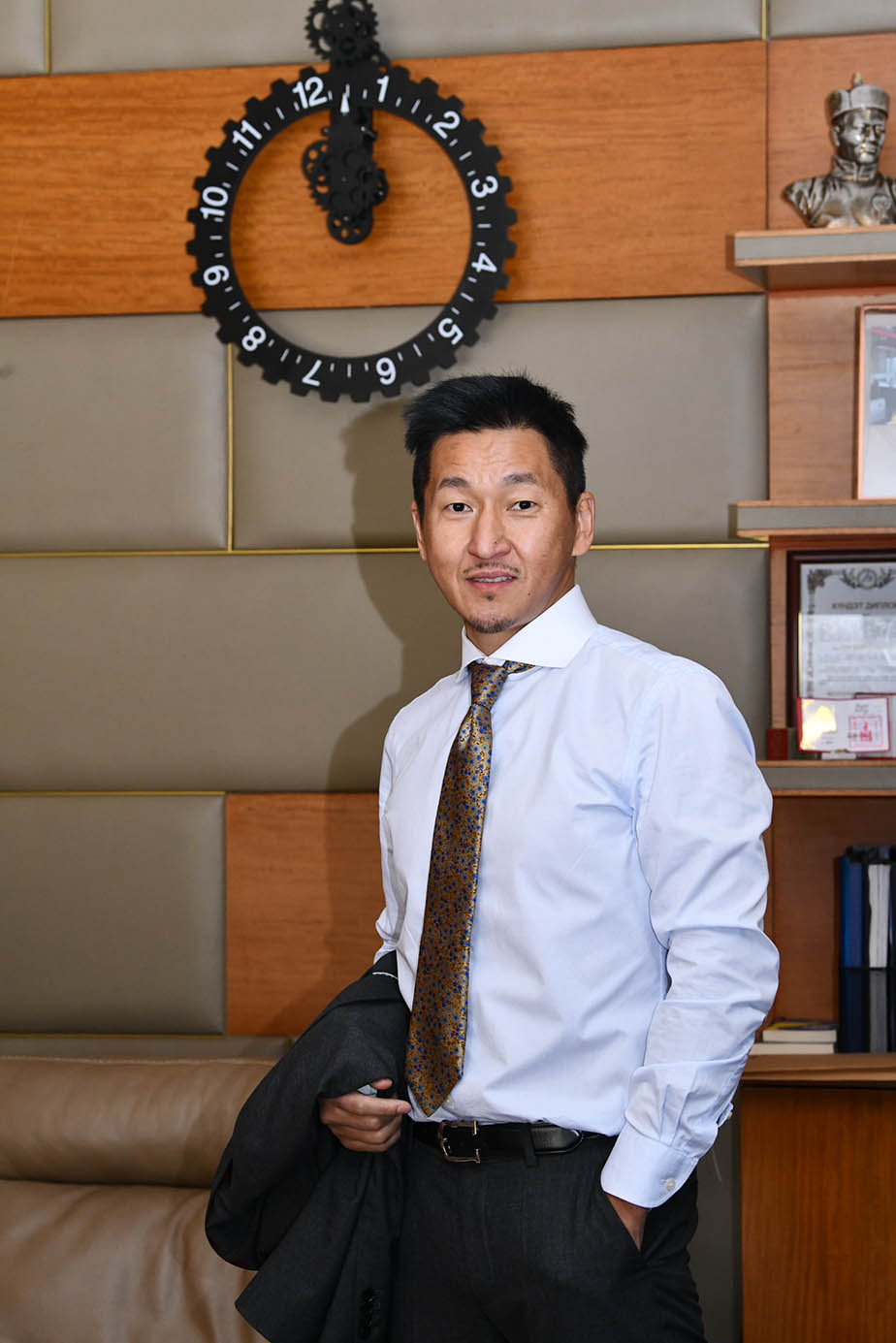
We appreciate the fact that you are not only investing in commercial businesses but also investing in education. Are you able to share with us some of your future business plans and what areas you are looking at getting into next?
I think tourism is an important and strategic sector. And obviously, infrastructure is the most important development factor in this field. The government recognizes the necessity of this important mega project but has not been implemented for many years.
I am still striving to raise awareness on such important issues and contribute to the development of our country. I have also been investing in foreign markets to the best of my ability so I can expand my businesses.
Mongolia’s economy is worth $13 billion and it is almost the same scale as a company in one of the world’s largest economies.
Although Mongolian businesses are growing rapidly, they do not have the experience, capital, or economic capacity to penetrate the international market. There are many challenges for businesses in Mongolia to overcome due to political decisions, bureaucracy, and uncertainty. It is impossible for me to say if I would be able to invest or do business in such an environment.
What are some of the big projects you are planning at the moment? Will there be a new mining deposit, a processing plant, or a new hotel in your future?
Although 70% of our economy depends directly and indirectly on mining; processing plants are not well developed and I am not sure that most people would be able to understand these issues. Even though it is necessary for the hospitality industry to further develop by building new hotels, these new hotels need to meet the international quality standards.
I do have a plan and a goal to build a large and modern world-class Emergency Center and Cancer Hospital that will cover not only our country but also extend in the regions. But I think this is a really important mega project rather than a business.
You are currently the Honorary Consul of Uruguay. Do you have any business linkage with this country?
I do have many international friends. A friend proposed for me to become an Honorary Consul and I think the role of Honorary Consul of any country is to take full rights and responsibilities; to represent many citizens and legal entities, to protect their legitimate interests, and to take the necessary measures to restore the violated rights of citizens and various legal entities.
Mongolia talks about diversifying its economy yet it appears to still be somewhat dependent on the mining sector. As a businessman, what do you see as a way to expand and diversify your economy?
It is very risky and hopeless for a country to depend on just one sector. Mongolia has some similar aspects to your country within the mining industry. The difference is that Mongolia’s mining products are exported to the southern neighbor at very low prices and such a small amount of income is pretty much used to buy machinery, equipment, fuel, and lubricants to be used in the mining sector. Due to the lack of equipment and production of mining products in our country, we have to import them.
The small amount of money leftover from this sector is going into the housing sector, which is in high demand but not affordable. Although our country has a large territory, urbanization and population density are concentrated in the capital city. Housing quality standards are not so good. In the construction sector, for example, materials are too expensive because they are 100 percent dependent on imports.
Given this situation, I see that it’s a necessity to focus on economic expansion and diversification and to support tourism and agriculture sectors through appropriate and effective policy tools. We all know how successful your country’s agricultural sector is. And in our case, we see Agriculture as our traditional sector and it has been going on without effective policies and economic support.
I think, in order to increase the number of people living and working in rural areas, we need policy tools and stimulus incentives to provide jobs in rural areas and it is necessary to abolish taxes for a certain period of time and implement large-scale long-term development financing instead. Instead of going abroad and doing the hard labor, Mongolian youth can get the opportunity to work and earn enough at home.
As mentioned earlier, the primary and secondary processing of mining products is important for economic expansion.
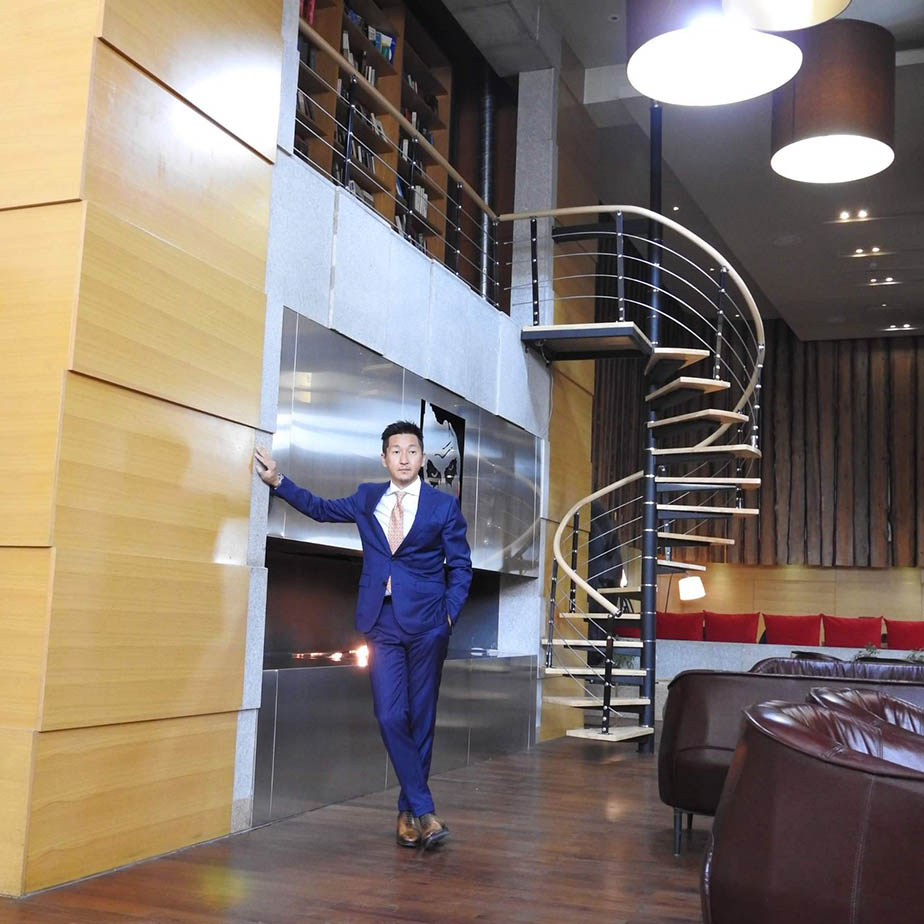
Foreign direct investment is very important for the development of any nation. Some news outlets claim that investing in your country can potentially be risky. What is your position on this?
I understand very well that foreign investment is a vital element in an economy. When you look at the history of a country’s development, it has developed with the help of know-how, the best technology, and the support of foreign investment, and has put its wealth into economic circulation and benefited from it. More than a decade ago, investors flocked to Mongolia, and we were on the radar of the world’s largest stock exchange, Mongolia was quite popular among the investment community and we were so-called Mongolia, the Mining country.
But due to the illegal actions of some individuals and decision-makers, it created an atmosphere of unfavorable business and investment climate. Our country is still ranked 116th in the Corruption Perceptions Index and 109th in the Judicial Independence Index. It is unfortunate that some of the decisions from the authorities’ leaned in favour of certain investors, which resulted in the public viewing investors as liars, thieves, and fraudsters.
It is clear that any country, high-profile investors would prefer to enter into a legally stable, equitable, and mutually beneficial agreement. No investor will refuse to cooperate with an honest government.
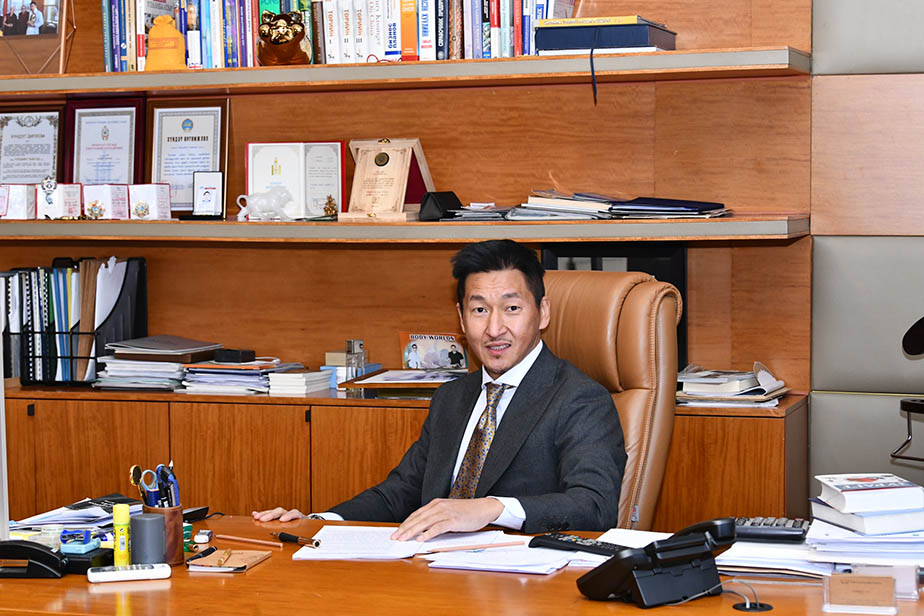
Based on your answers, we can tell that you have gone through some unfavorable economic and political climate, How do you see the future of Mongolia?
Our country covers an area of 1.5 million square kilometers and has a population of 3.4 million. It has rich mineral resources, well-developed agriculture, and a traditional livestock sector. Given such conditions, I see the full potential and opportunity to grow in a very short period of time.
Throughout the history of any country’s development, there has been a great deal of corruption and populist decisions caused by wrong decisions. And such countries would correct their mistakes in a short period of time and usually, most of them would spend 20-25 years to reach the level of rapid development. In our country’s case, we are in transition mode for almost 30 years and I think we could have reached the level of other developed nations if we were able to establish a system of accountability during this period.
The legal and judicial system must apply equally to ordinary citizens and the authorities. It is not possible to talk about development in a situation where the accountability system for the highest officials is not strictly enforced and the legal climate is in different favor.
Civil society in developed countries is very active and accountable to those in power. The authorities have a high sense of ethics and responsibility because their ordinary citizen can strictly control, unite and dismiss the politicians they choose to represent them.
In a developed world, people march 3-4 times a year against the inappropriate and blind decisions of the government. Whereas in Mongolia, we protested 3-4 times in 30 years – unfortunately, there is such submission and inactivity.
The consequences of this situation might force Mongolia to slip into the examples set by North Korea, Turkmenistan, and Uzbekistan, which are all subject to the decisions of one group or an individual and it could be the same case with countries such as Venezuela and some African countries that are under chaos and violence.
We chose a citizen-friendly democratic country, however, the reality today is not so good. The alignment of politics and economics are linked, and I think that development is not far off if we create a favorable legal environment and do not lose the basic principles of democracy and equality. Those are my cautions and criticisms.
Optimistically, we have a lot of opportunities. For the first time in 30 years, there is one party faction serving together as the President, the Speaker of the Parliament, and the Prime Minister.
In this case, I think there is optimism that it is possible to push forward with our mega projects and make important strategic decisions. I don’t want to lose the opportunity and waste our economic opportunities.
Mongolia is a lesser-known travel destination – In some countries it is well known because of Genghis Khan, while in other countries it’s referred to as “Chinese Mongolia.” How do you think your country measures up compared to the rest of the world?
Mongolians are in the top ten out of more than 200 countries in the world in terms of intellectual potential. Mongolians are people of intellectual ability, responsibility, adaptability, and high productivity. I want Mongolia to be well known in the world as this image. Nowadays, there are many young Mongolians successfully working and leading in the world’s largest companies and banks. So, therefore, I believe we have a great future.
Thank you for your time and we wish you more success in your business!
